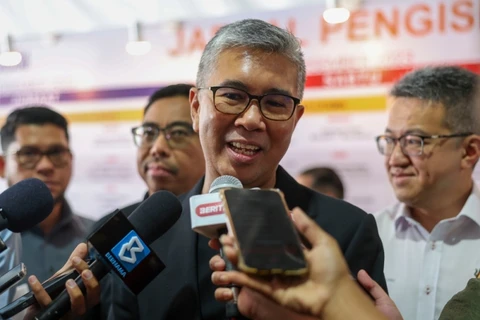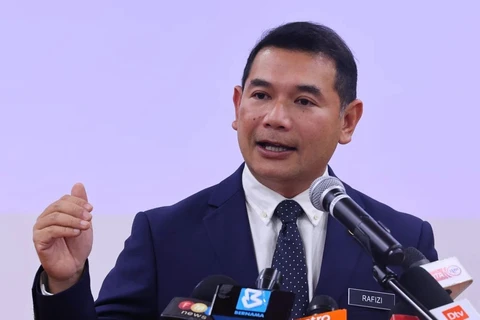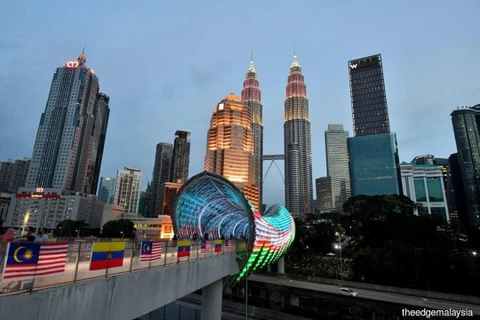
A general view of the Customs, Immigration and Quarantine Complex at the Malaysia-Thailand border in Pasir Mas. (Photo: Bernama)
Kuala Lumpur (VNA) – Malaysia's Ministry of Domestic Trade and Cost of Living (KPDN) on January 21 announced that it will arrange enforcement officers at seven national border checkpoints in four states of Perlis, Kedah, Perak and Kelantan, to combat the leakage and smuggling of controlled and subsidised goods to neighbouring countries.
KPDN Minister Datuk Armizan Mohd Ali said the deployment of ministry enforcement officers will go on until the establishment of the Single Border Agency (SBA).
He added that the move aims to ensure the Government’s subsidy policies are implemented effectively.
He said his ministry will hold talks with the Home Ministry and Immigration Department to allow enforcement officers to be stationed at the country’s entry gates like officers of the Customs Department.
Armizan said his ministry will also continue the implementation of Op Tiris this year to monitor other controlled items such as sugar, cooking oil, wheat flour, RON95 petrol and liquefied petroleum gas (LPG).
KPDN will also conduct supervision and inspection of business locations of wholesalers and retailers in border areas, including diesel traders, people with licences to trade the subsidised goods, transport companies, and export companies to get information about the goods supply and distribution./.























